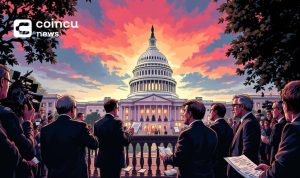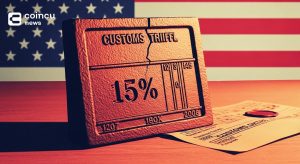President Bukele Links El Salvador’s Growth With Making Bitcoin Legal Tender
Key Points:
- El Salvador’s recent adoption of Bitcoin as a legal tender has improved the country’s economic fortunes.
- The government’s measures to reduce the fiscal deficit and manage public debt have helped regain investor favor.
- Despite positive developments, El Salvador still faces challenges such as a high domestic debt stock, limited access to international capital markets, and an 8% current account deficit.
Bukele links legalizing Bitcoin as tender to El Salvador’s economic progress, citing its edge in the new system and attracting investments, as per Financial Times.

El Salvador’s recent economic performance has been a topic of interest for many investors due in part to the country’s adoption of Bitcoin as a legal tender. The move by President Bukele has been linked to the country’s improved economic fortunes, but many experts argue that other factors have played a more significant role.
For one, El Salvador has significantly reduced its fiscal deficit and managed its public debt. The government has announced bond buybacks using special drawing rights from the IMF and loans from the Central American Bank for Economic Integration, which has helped regain the favor of investors. Additionally, the government has passed a pension system reform bill, which has imposed a cap of $3,000 per month and given them the ability to tap into private pension savings as a source of income.

Despite these positive developments, El Salvador still faces significant challenges. The country’s current account deficit rose to 8% of GDP in 2022 due to increased import volumes, and international reserves have fallen to around two months of imports. Furthermore, the country’s high domestic debt stock (8.75% of GDP) and limited access to international capital markets have raised concerns among investors.
While Bukele’s anti-crime initiatives have contributed to reduced crime and boosted investment activity, they have also drawn criticism for alleged human rights abuses. The IMF, for instance, has noted that the “unprecedented reduction in crime” has contributed to robust economic and investment activity. Still, the alleged sweeping up of innocents as well as gang operatives has raised concerns about arbitrary detentions and cattle pen prisons.
Finally, with an election on the horizon, investors wonder if Bukele can continue to control the country’s finances. He has held expenditure quite flat, which is encouraging, but investors are concerned about whether he can continue to do so in the year before the February 2024 election.
DISCLAIMER: The Information on this website is provided as general market commentary and does not constitute investment advice. We encourage you to do your own research before investing.
Join us to keep track of news: https://linktr.ee/coincu
Thana
Coincu News























